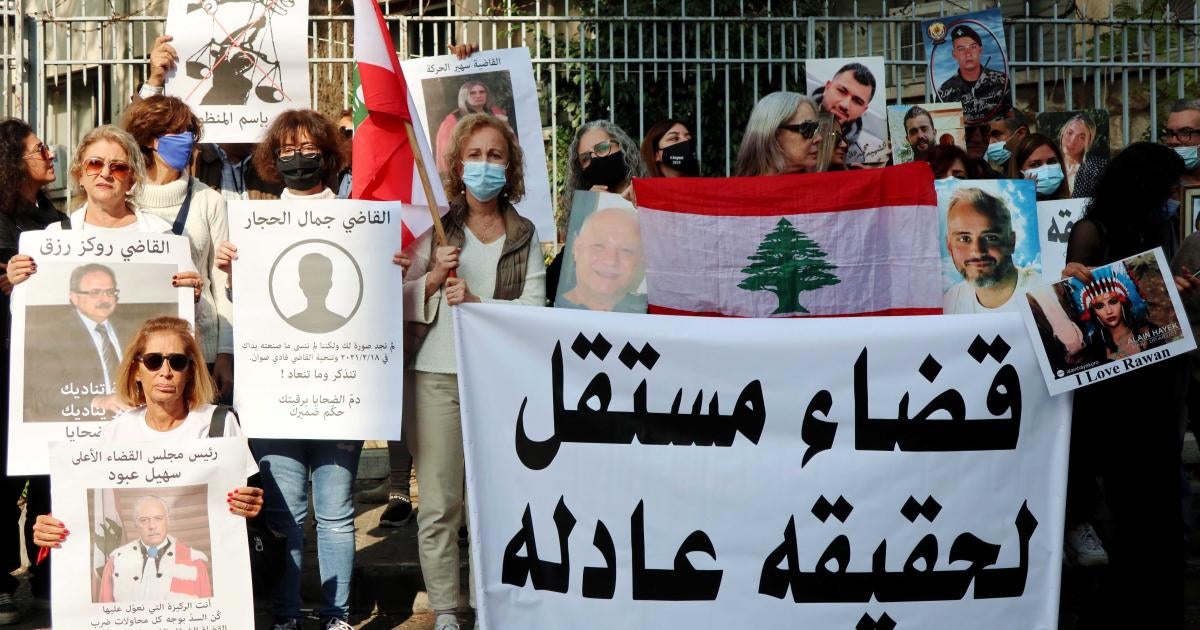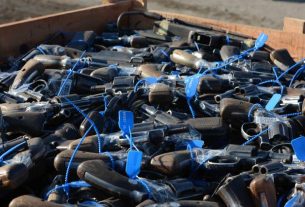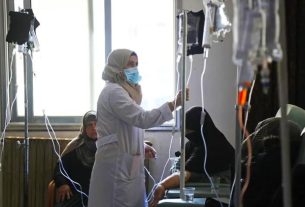(Beirut) – Thirty-eight countries at the UN Human Rights Council on March 7, 2023, condemned the pervasive obstruction and interference with Lebanon’s domestic investigation into the August 4, 2020 explosion at Beirut’s port, Human Rights Watch and Legal Agenda said today. Lebanese authorities should urgently act to carry out badly needed judicial reforms and remove other obstacles undermining the domestic investigation into the explosion.
In a joint statement delivered by Australia before the UN Human Rights Council, the 38 states called on Lebanon to “to take all necessary measures to safeguard, in law and in practice, the full independence and impartiality of the Lebanese judiciary,” and to ensure that a “swift, independent, impartial, credible, and transparent investigation into the explosion” be carried out.
The investigation into the explosion has been suspended for over a year.
“The course of the domestic investigation has been repeatedly obstructed in the last two years and justice is still denied to the victims of the Beirut port explosion,” said Ghida Frangieh, head of litigation at The Legal Agenda. “It is time for Lebanon to end the cycle of legal impunity and strengthen its judicial institutions.”
For years, Lebanese and international rights groups have documented political interference with the judiciary and criticized its lack of independence, which has allowed a culture of impunity to flourish in Lebanon.
In 2018, Legal Agenda submitted a draft law to parliament on judicial independence and transparency which met international fair trial standards. Amendments to the draft law made by Parliament’s Administration and Justice Committee and suggested by the Minister of Justice fail to meet Lebanon’s international legal obligations in many key respects.
Lebanon’s parliament should now urgently review and pass a draft law on judicial independence and transparency that adheres to international standards.
Reforms should also be undertaken to amend Lebanon’s codes of judicial procedures to eliminate abuses of the judicial process.
Lebanese politicians who are suspects in the Beirut port explosion case have filed over 25 requests to dismiss the lead investigator, Judge Tarek Bitar, and other judges involved in the case, causing the inquiry to be repeatedly suspended while the cases are adjudicated. The latest series of legal challenges filed against Judge Bitar resulted in the suspension of the investigation on December 23, 2021.
Amending article 751 of the country’s Code of Civil Procedure and article 52 of the Code of Criminal Procedure in line with international standards would ensure that judicial investigations are no longer automatically suspended when such lawsuits are filed against the investigative judges.
In addition to these long overdue legal reforms, the organizations also called on Lebanon’s General Prosecutor, Ghassan Oweidat, to comply with the judicial decision recusing him from the case and to refrain from interfering with the domestic investigation. Oweidat recused himself from the case in December 2020 after one of his relatives was charged in the case, and his recusal was accepted by the Court of Cassation.
On January 23, 2023, Judge Bitar attempted to resume the investigation and summoned Oweidat for interrogation in the case. Two days later, Oweidat ordered the release of all suspects detained in connection with the catastrophic explosion in Beirut’s port, a decision the Beirut Bar Association, the Lebanese Judges Association, and the Lebanese Coalition for the Independence of the Judiciary criticized as illegal.
The August 4, 2020, Beirut port explosion was one of the largest non-nuclear explosions in history, killing at least 220 people, wounding over 7,000, and causing extensive property damage. An in-depth investigation by Human Rights Watch found that the disaster arose from the government’s failure to protect the fundamental right to life and pointed to the potential involvement of senior political and security officials in Lebanon.
UN member states should support justice for the victims of the August 4 explosion by taking further action at the Human Rights Council, the organizations said. The Human Rights Council should pass a resolution which establishes and dispatches, without delay, an independent and impartial fact-finding mission for the Beirut explosion. The 38 member states’ joint statement delivered today is a significant step in the right direction, as it demonstrates that several governments, including many of Lebanon’s donors and supporters, are losing patience with the government.
“From Australia to Costa Rica to Japan, governments from around the world stood up today to defend the rights of the victims of the Beirut port explosion, but more work is to be done,” Lama Fakih, Middle East and North Africa Director at Human Rights Watch said. “Time is running out for an effective investigation. Member states should support a resolution at the Human Rights Council establishing a fact-finding mission as soon as possible.”



